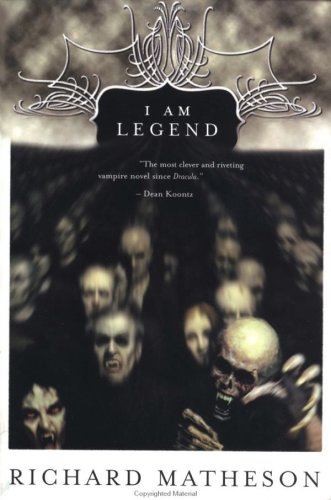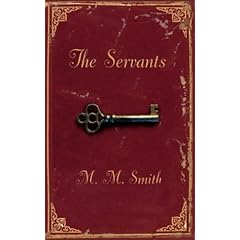Stupid title, oh well.
I recently read Ian McEwan’s Atonement for the Ship of Fools Book Club, and then, since it was availble in Tescos for a fiver, I got the DVD and watched that too. So here’s your all-in-one multi-purpose Atonement review.
The Book
I really enjoyed the book, well most of the book. It’s in four parts and the first four tell the story of Robbie and Cecilia a couple whose fledgling love affair is almost prevented by class, family, war and false accusation of a crime. The final part reveals the fact that the previous three parts were a novel written by Briony, who made the accusation, regretted it and is atoning by writing the story. Only she reveals that she may or may not be telling the truth, part of her atonement may be to tell a better version of the story, one which gives Robbie and Cecilia the happy ending that real life denied them.
Except of course it’s all fiction any way so there is no “real life”, so it doesn’t matter right? As McEwan, speaking through Briony says,
I know there’s always a certain kind of reader who will be compelled to ask, But what really happened?
Well yes, and sorry Mr McEwan but I am that kind of reader. But I’ll come back to that. Anyway if you want to hear my musings on the ending read my comments on the Ship thread.
As for the parts I enjoyed, the other 90% of the book, let me say a few words about that. The first section was slow to start but very atmospheric, something quite deliberate as we’re later told this is one of the flaws in Briony’s writing style. It’s very clever in the way it switches perspective and moves around in time, without ever being confusing. As someone who’d like to be a better writer I envied McEwan’s talent and will go back and look at those parts to learn I suspect.
The second section of the book is Robbie’s journey to Dunkirk through a war-torn France. I haven’t read a lot of wartime fiction (though I’m aware there is a lot) so perhaps it was that that made me so engrossed in this section. I learnt a lot and like the first thirty minutes of Saving Private Ryan it put me there in that situation and gave you that feeling of how utterly brutal and yet random the sufferings of war can be.
The third section is the story of Briony training to be a nurse and treating some of the victims of that suffering. Again it was the things I learnt, the empathy evoked for the suffering and the sense of Briony’s growing up. There’s also a very real sense of wanting to know what will happen, how it will play out when, if, Robbie and Cecilia are re-united. This leads up to a riveting scene where Briony meets with them to tell them she’s recanting and to make her atonement.
Of course it’s this very sense of wanting to know what happened that is frustrated in the final section. Although at the very end there’s a cosy call-back to Briony’s childhood which if not making up for her ripping the narrative rug from under us, at least leaves a better taste in the mouth.
But the unsatisfying ending is all the harder to take because the rest of the book is so good.
8/10
The Movie
In terms of structure the movie is very faithful to the book. It’s beautifully shot, especially the first section, but then almost all period dramas are. I guess once you’ve got gorgeous locations and wonderfully made period costumes that it seems a shame not to make the most of them, and so the cinematographer is given his head.
My problems start with the middle section, the France section, which in the book was my favourite and in the movie is truncated. That’s ok, adaptations have to cut stuff out, but what they removed was most of the tougher stuff, so that sense that the journey was perilous and at any moment you might be killed, or saved, by pure dumb luck wasn’t really in the movie. The scene at the beach at Dunkirk, a masterfully shot 4-minute one shot, gave the impression that it was merely that things were a bit disorganised.
I also had a problem with the casting. Keira Knightley does ok, she’s as good here as anywhere, and James McAvoy is slightly better but in key moments they fall short of the source material. That killer scene I mentioned earlier, the confrontation with Briony, contains a moment where Robbie becomes enraged and may even harm Briony, and Cecilia brings him back from the edge by force of will, her love and holding him with her eyes. The scene is in the movie but it has none of the sense of physical menace nor the restraining power of Cecilia’s love communicated in a look. I watched it and thought, they just didn’t nail it.
Perhaps where the movie is most different is the ending. They replace the putting on of Briony’s play with a TV interview about the publishing of her book. In doing so Briony tells us exactly what happened. That Robbie and Cecilia both died, unre-united in separate senseless losses of the war. That her atonement was to write them a happier ending and that that’s precisely what she did.
Watching this made me realise that whilst I didn’t like the ending of the book, I preferred some remaining ambiguity to the certainty of the movie. The movie ending did have at least one thing going for it though, and that was showing Robbie and Cecilia enjoying their happy ending, playing in the surf near their seaside cottage. And leaving them on a happy moment, even a false one, is nice that it otherwise would have been.
6/10
The Buffy Episode
No really.
The discussion around the ending and the nature of storytelling has reminded me of the Buffy episode Normal Again. Naturally I’ll be getting to this in the Buffy Re-watch project but since it’s season 6 and therefore it’ll probably be 2019 before I get to it I’ll mention a few thoughts here.
Normal Again is superficially just BtVS’s version of a staple plot in genre TV – the alternate reality story where two interpretations of events unfold and the hero is not sure until the end which is real. In this case Buffy is attacked by a demon which infects her with some kind of drug that causes her to hallucinate that she’s really in a mental hospital. Her dead mother is alive and visiting with her abandoning father. It’s explained that Sunnydale, the monsters, her powers and all her experiences are an imaginary world she’s created as a kind of comfort.
It’s cleverly done but so far so Star-Trek-did-it-first. What sets apart Normal Again is that it ends the wrong way. There are certain conventions about this kind of episode. One is that you tell it from the hero’s point of view until you’re ready to reveal which reality is the true one, but Normal Again pretty much sticks with thirdy party pov all the way through. The plot is set up so that Buffy has to choose which reality she wants to live in – if she kills her friends it will “kill” the hallucinatory Sunnydale world and be cured, able to return to her mom and dad. What she actually does is kills the demon and the hospital world disappears.
But the kicker is that it ends, not in Sunnydale, but with Buffy catatonic in her hospital room, the camera pulling back slowly. In TV language that’s saying this is the true reality and it (it being the whole series so far) was all a sick girl’s imagination.
This made a lot of people angry, as Atonement apparently did also. However I think that given that we know from the consistent point of view and the fact that the show carries on and is in fact about Buffy fighting monsters in Sunnydale, that that final shot is about something else. It’s about saying that like Buffy we get to choose which reality we want to live in. We can choose to suspend disbelief and we get the fantasy world of Buffy with all her exciting adventures.
This episode came at a time when there was lots of discontent amongst the fans, a lot of which was around how unrealistic, how untrue to the characters, the show had become. There was also a lot of nitpicking over plot holes and inconsistencies. I always thought of Normal Again as a sly dig at those fans, as an appeal to suspend disbelief again and thereby enjoy the fantasy.
I guess the difference is that BtVS managed to do it in a way that didn’t make me angry.
In case you’re wondering, I’ll rate Normal Again when I do a proper review.

 Dollhouse is the new TV show from Joss Whedon, starring Eliza Dushku. You may not have heard much about it, you certainly haven’t from this blog because I’ve been keeping a low profile. I’ve been deliberately ignoring hype and information for two reasons:
Dollhouse is the new TV show from Joss Whedon, starring Eliza Dushku. You may not have heard much about it, you certainly haven’t from this blog because I’ve been keeping a low profile. I’ve been deliberately ignoring hype and information for two reasons:


